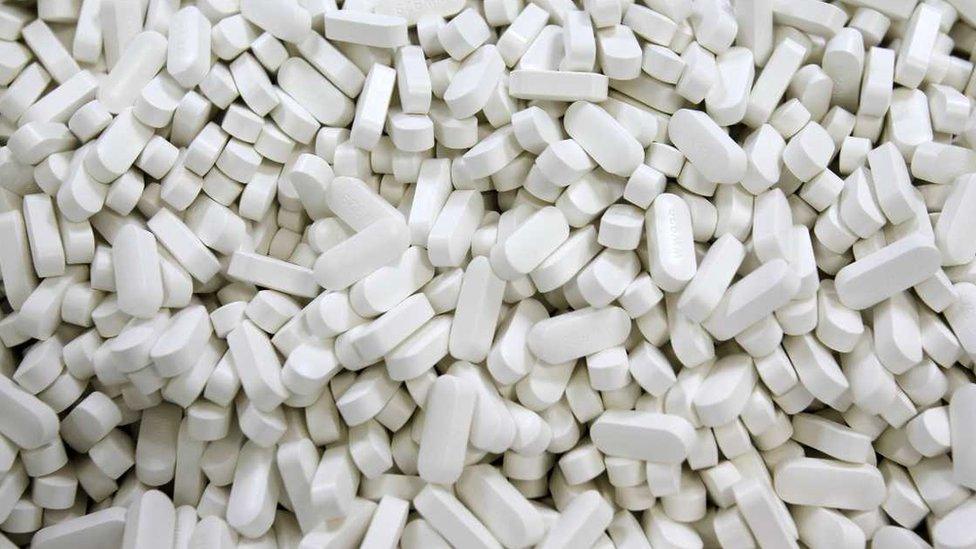Pandemic drinking: Alcohol misuse treatment up 10%
- Published
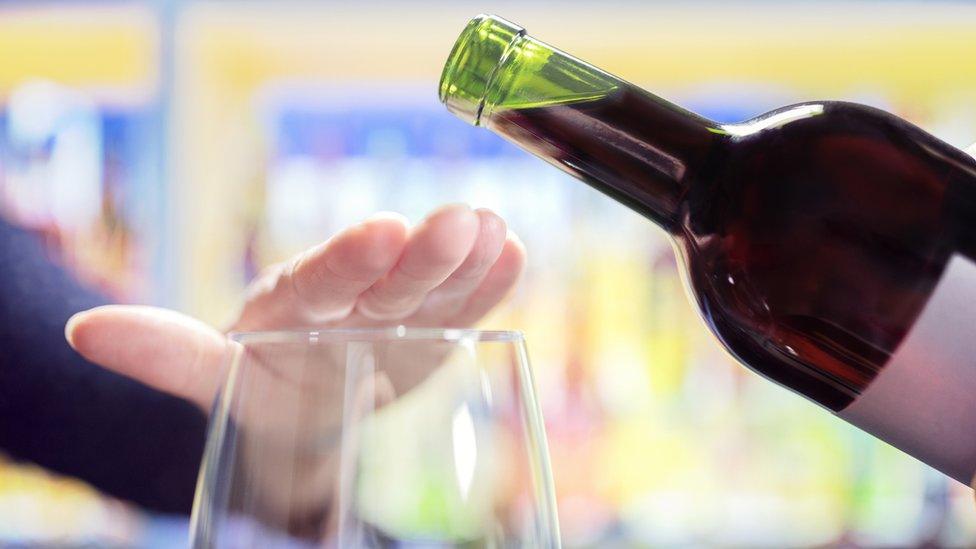
The number of adults treated for alcohol misuse in England climbed 10% in the year to March 2022, fuelled by a rise in drinking during lockdown.
New government data, external shows this rise pushed the number of people receiving treatment for all types of substance misuse to 289,215, a seven-year high.
And experts say there are many more people struggling with drug or alcohol use who are not receiving treatment.
The government said it was committed to tackling the root causes of misuse.
Dr Richard Piper, chief executive of the charity Alcohol Change UK, believes about 600,000 people in the UK require alcohol treatment, but said "the vast majority are not accessing it".
"Evidence shows that, for many people, the Covid-19 pandemic led to an increase in their drinking with those already drinking heavily most likely to have been drinking more."
During the pandemic, most drug and alcohol services limited face-to-face contact in 2020 and 2021. Most restrictions were lifted by July 2021.
Nat Travis, national head of substance misuse at charity Turning Point, said they saw "a significant increase in the number of alcohol referrals" during lockdown, which is reflected in the latest figures.
The data, published by the Office for Health Improvement & Disparities, shows:
at 140,863, nearly half of all people receiving substance misuse treatment did so for opiates
at 84,697, alcohol alone made up the second largest group
of those who completed treatment, 49% did so successfully
people treated for alcohol had the highest successful completion rate at 59%
opiates had the lowest completion rate, at 24%
Your device may not support this visualisation
The data includes people who self-referred or were referred by family and friends, by health and social services, or through the criminal justice system.
Dr Piper added: "Any one of us can find ourselves drinking harmfully and seeking early help and support is one of the best things we can do if we do find ourselves struggling".
He says stigma surrounding alcohol problems can be a barrier to people seeking support.
Every year, people die while they are in an alcohol and drug treatment programme, but these deaths may not be alcohol or drug related.
In the year ending March 2022, 3,742 people died while receiving treatment, the highest number on record.
This was 1.3% of all people in contact with services, down from 1.4% the year before. While more people died, the number of people receiving treatment was also up.
Almost two thirds of those who died were receiving treatment for opiates.
A Department of Health and Social Care spokesperson said: "We are committed to tackling the root causes of substance misuse with our 10-year drugs strategy.
"This year, we have invested £95m of new funding to rebuild drug and alcohol misuse treatment centres and services in England, providing treatment to thousands of people. We are also funding specialist alcohol care teams in the 25% of hospitals with the highest need."
For support with substance misuse, contact your GP or visit BBC Action Line.
Related topics
- Published8 December 2022
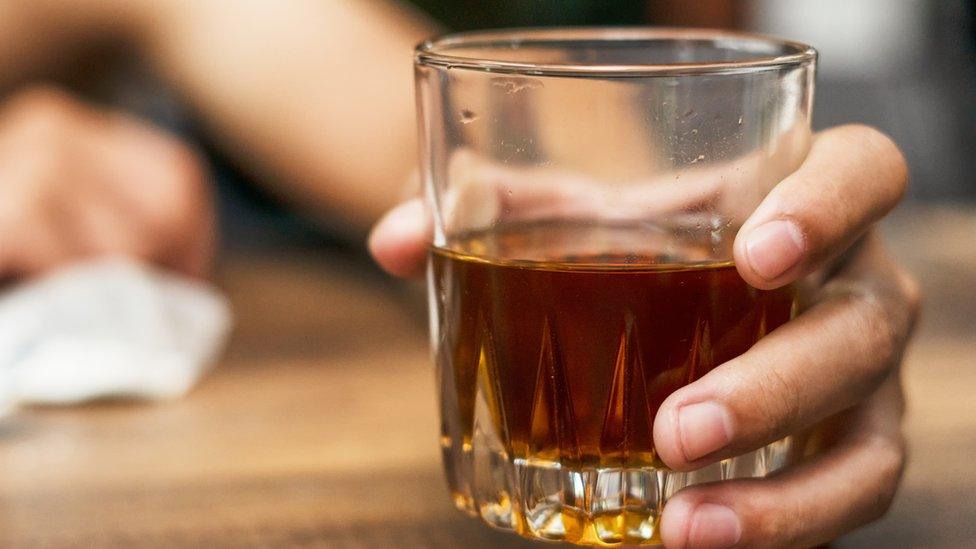
- Published22 December 2022
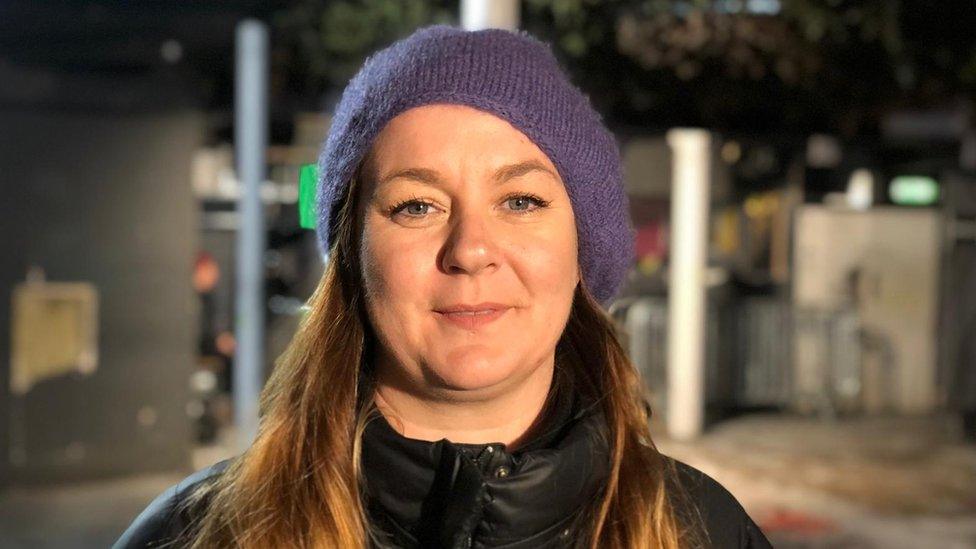
- Published15 January 2023
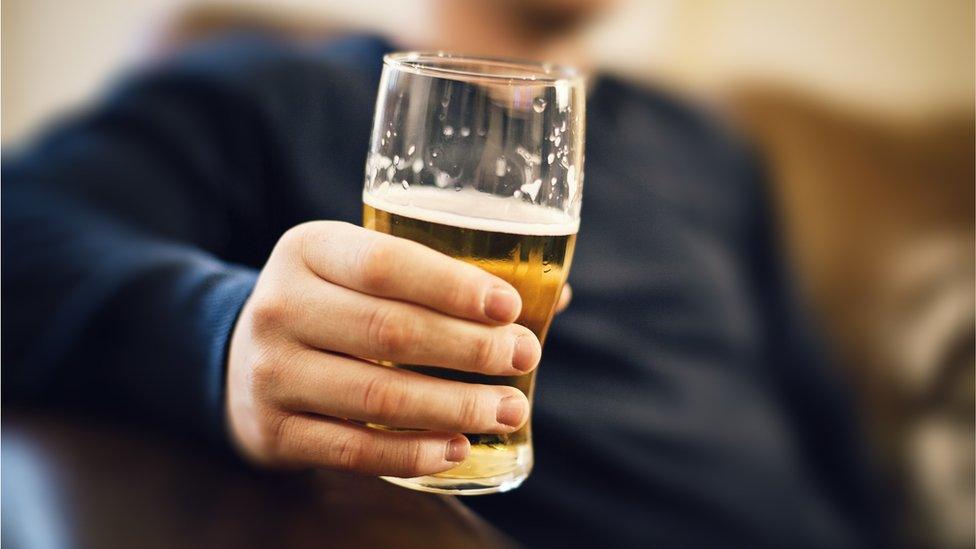
- Published10 November 2022
